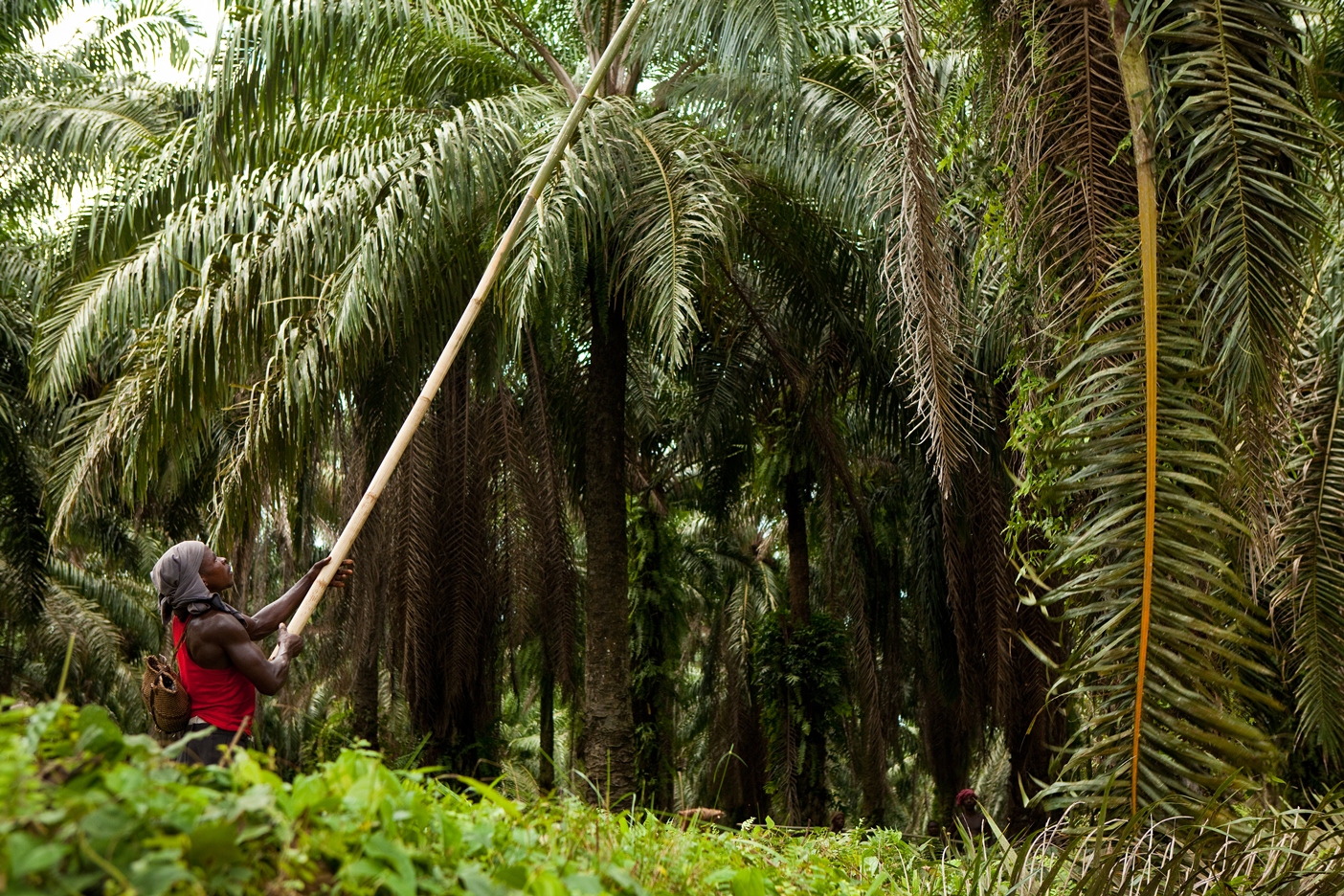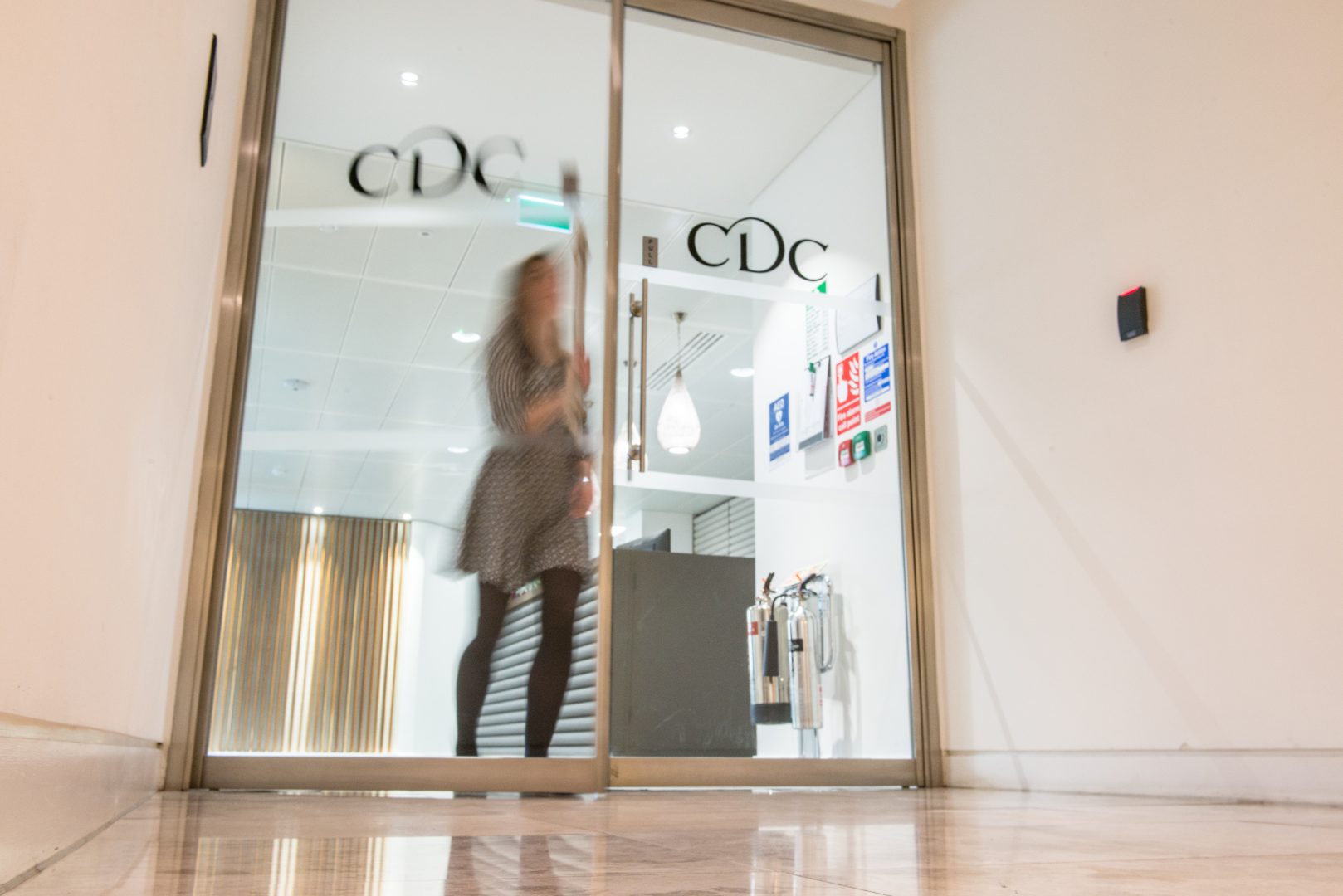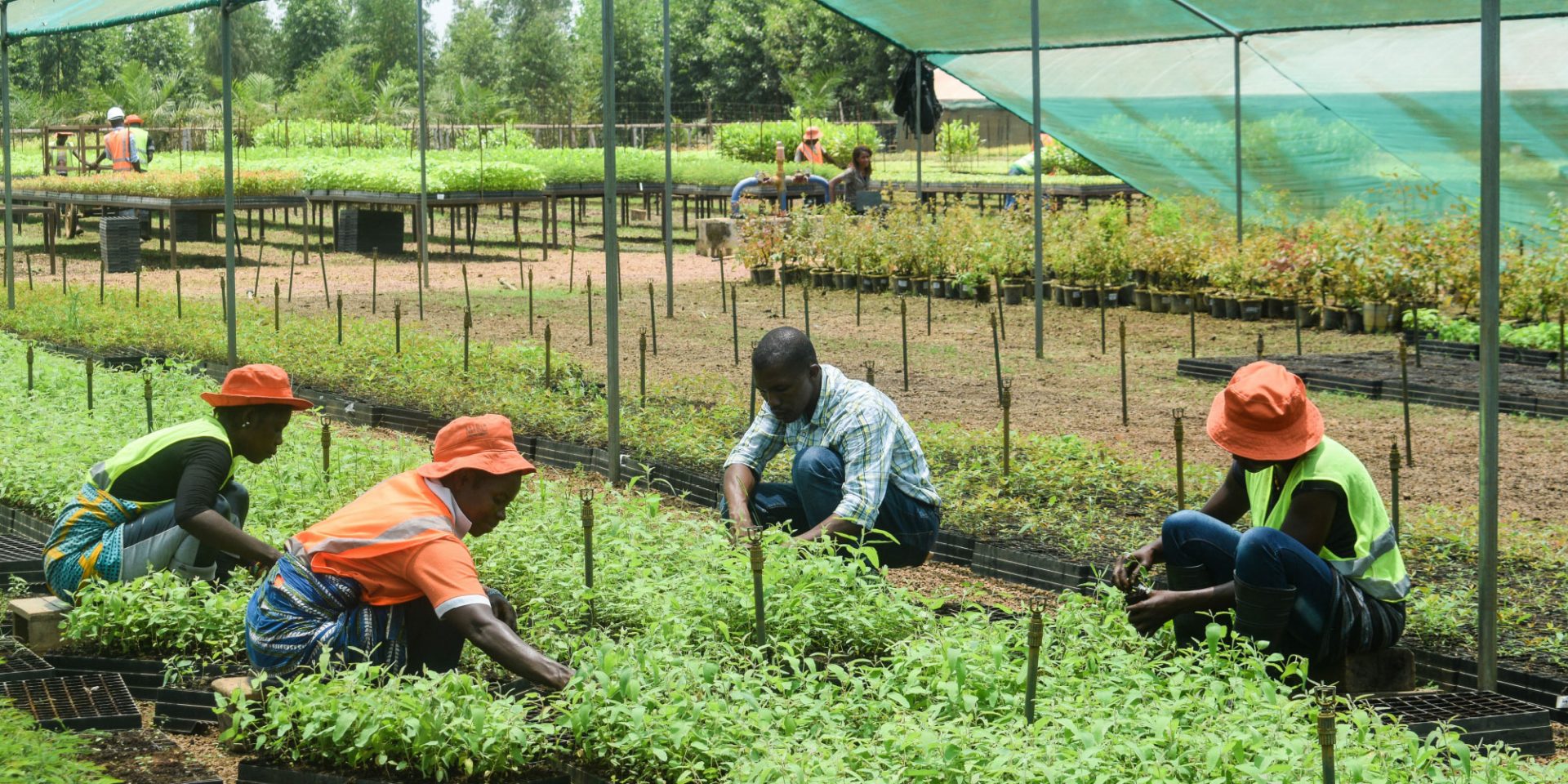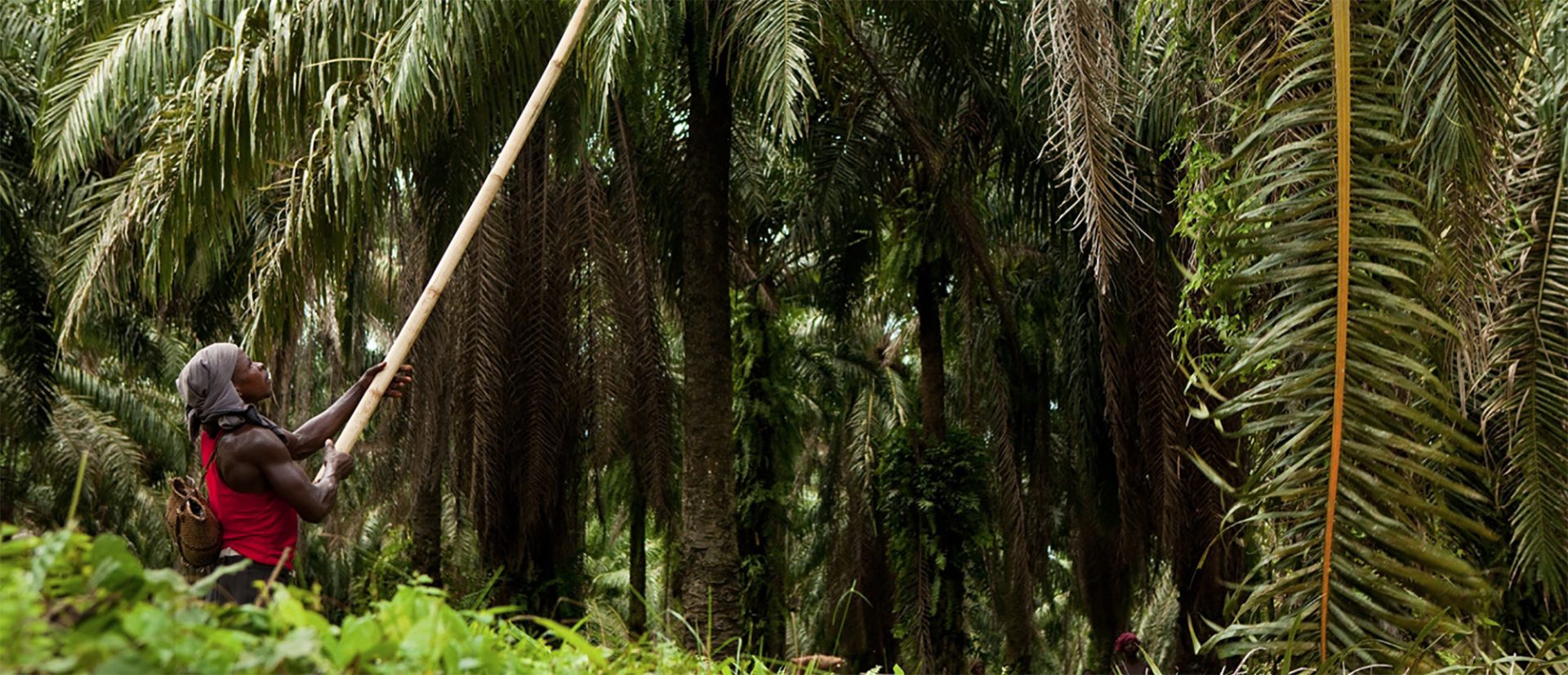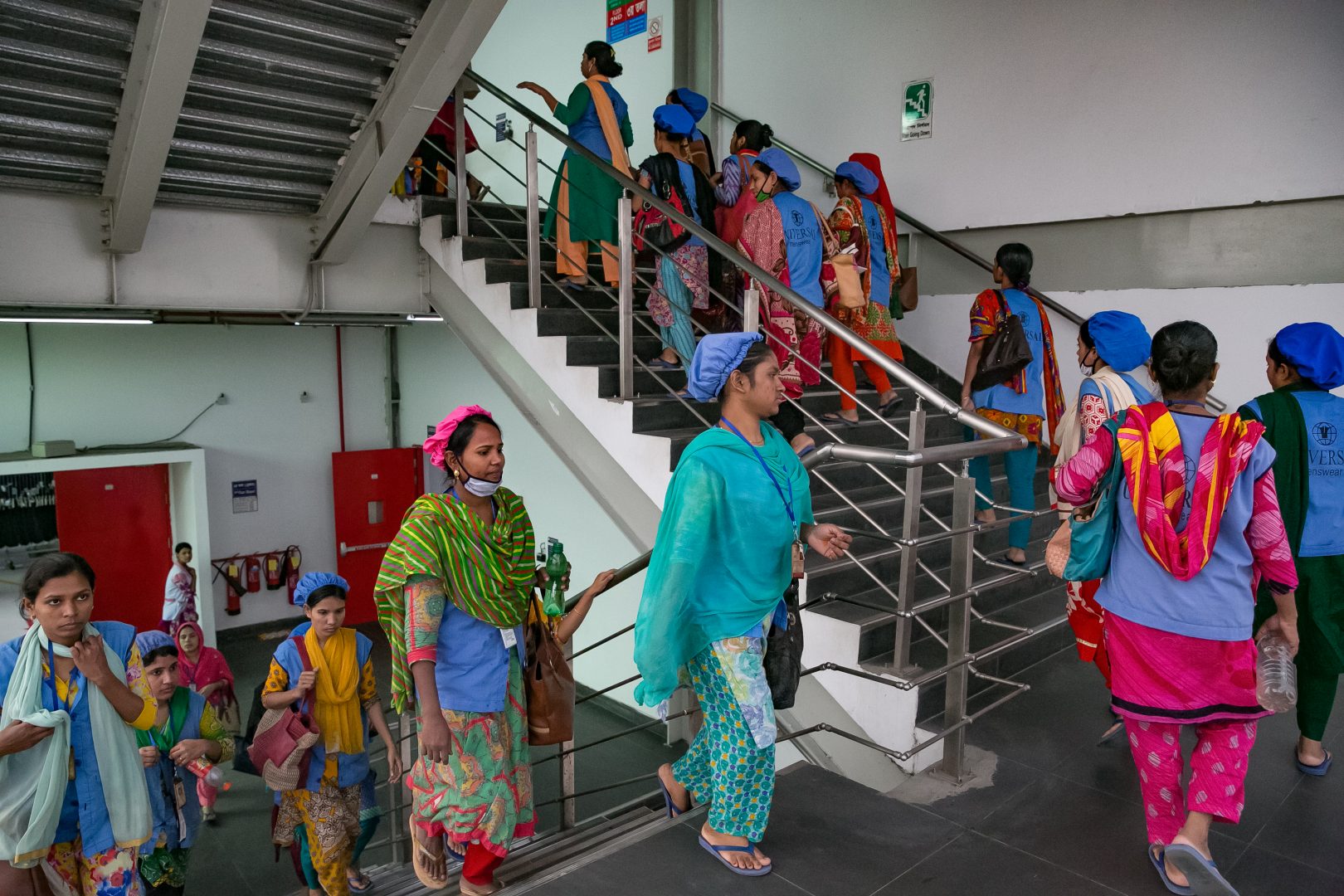
This has been written to answer recent questions about Feronia and Plantations et Huileres du Congo S.A (“PHC”), its long established palm oil business in the Democratic Republic of the Congo (DRC). Both CDC and Feronia are happy to communicate openly and transparently with those interested in the Company.
Background
About PHC and Feronia
PHC is an established oil palm business in the DRC owned by Feronia. It has over 100 years’ history and has three remote plantations in Lokutu, Yaligimba and Boteka, each located hundreds of kilometres from the nearest city and without substantial infrastructure. After the DRC Government, PHC is the largest employer in the DRC, with around 9000 permanent and temporary employees.
Feronia bought PHC from Unilever in 2009. At that time PHC had suffered years of underinvestment and disruption caused by conflict in the DRC. The two periods of major conflict in the DRC between 1996 and 2003 severely affected operations. Subsequently, while the business resumed operations, it went into a period of decline due to under-investment and lack of strategic support from its parent Company. During this period, the local senior management, many of whom still work for PHC, and a core staff of approximately 3,000 people kept the business running to the best of their ability, often at great personal risk. Despite their best efforts, when Feronia acquired PHC in 2009, it was nearly extinct as a business.
Without Feronia’s intervention to buy PHC, and the subsequent investment from CDC and other development finance institutions (DFIs), it is highly unlikely that this historic Company employing thousands of workers in a region where there is virtually no other formal employment would have survived.
About CDC’s investment and support
CDC first invested in Feronia in late 2013 and, following an additional investment in early 2016, we now own 67 per cent of the Company. Feronia has also received investment from a number of other European DFIs, including DEG of Germany, FMO of The Netherlands and BIO of Belgium.
CDC’s initial priority has been to support Feronia’s efforts to secure the future of PHC by rebuilding the business and resuming production. This is the only way to secure the livelihoods of the many thousands of people directly and indirectly employed by the business. The business has made some positive progress, for example, it has doubled production, but while we see a medium-term path to financial sustainability, the Company is still loss-making.
We believe that having a job and supporting the economy is one of the best routes out of poverty. The DRC is ranked by the IMF as the poorest country in the world. Job opportunities are scarce, and even more so in remote, rural parts of the country. Feronia is already making a huge difference to the local community. Not only has it secured close to 9,000 permanent and temporary jobs but Feronia provides access to schools, hospitals and infrastructure, such as roads and water, for its workers and the community.
We are sensitive to the environmental and social concerns associated with palm oil plantations. Irresponsible practices have led to unacceptable social and environmental impacts in many parts of the world. With Feronia we have developed our business strategy to prevent these problems, for instance PHC has a commitment to no deforestation and intends only to rehabilitate old plantations and infrastructure (i.e. replanting old plantations and not expanding). Furthermore, the Company will not export their palm oil, therefore helping address food security problems in DRC.
Feronia also has a comprehensive Environmental and Social Action Plan (ESAP), supported by US$3.6m from CDC, which was ring-fenced for this purpose at the point of investment.
The Company is operating in extremely challenging conditions and there is still a long way to go to rebuild a business that suffered many years of neglect. But improvements are already being made to the way the Company operates and employee and community conditions.
For further information, Feronia’s website shows much of its progress and the Company regularly publishes management reports and financial statements as a requirement of its status as a Company listed on the Toronto Venture Exchange. The Company’s plantations are not fenced, and public roads go through them, meaning anyone can come and see how they operate. Feronia is keen to work with NGOs and others who want to play a constructive role in helping improve the lives for the people who live in and around their plantations.
Q&A
- What does the involvement of DFIs mean for the Company?
DFIs exist to make a positive difference to people living in some of the world’s poorest places by helping to build sustainable businesses and create jobs. DFIs often invest in circumstances where commercial lenders and investors are unwilling or unable to help.
Without the involvement of DFIs in Feronia and PHC, around 9,000 permanent and casual jobs would have been lost in one of the most remote parts of the poorest country in the world. The impact would have been particularly tough because the Company also provides essential hospitals, schools and other infrastructure for its workers and local communities.
DFIs are highly selective about the types of companies they invest in. They impose requirements on investee businesses to work towards internationally-recognised standards in areas such as the environment, social matters and corporate governance.
Their involvement in Feronia, and the levels of transparency and accountability they bring, is hugely positive for all stakeholders. Feronia has embraced the support and the approach and discloses information about environmental and social assessments, practices and policies, as well as land titles.
Prior to investing and lending to Feronia, the DFIs undertook a substantial and robust due diligence process looking at legal, financial and responsible investing matters.
A key part of the due diligence was the requirement to commission an Environmental and Social baseline assessment (ESA) to analyse the positive and negative environmental and socio-economic risks associated with the rehabilitation of the plantations. This was based on two internationally accredited frameworks: RSPO and the IFC Performance Standards. The ESA was a considerable undertaking and resulted in three volumes (biodiversity, socio-economic and environmental) and 21 individual reports. They are all available online on Feronia’s sustainability page. To our knowledge, these studies are the first of their kind within the agricultural sector in the DRC and have been used extensively by those responsible for managing Feronia’s Environmental, Social and Governance (ESG) programme to guide and instruct activities.
Significant elements of the ESG programme include:
‒ Developing, implementing, continually reviewing, updating and developing an Environmental and Social Action Plan (ESAP) for which CDC ring-fenced US$3.6m at the point of investment;
‒ Establishing an ESG Board Committee to provide oversight on the implementation of the ESAP, and other ESG matters;
‒ Commissioning and publishing (on the Company website) an extensive Environmental and Social baseline study to assess the communities and environments in and around its operations so that the Company can track progress over the long-term and plan accordingly to ensure that lives are improved and the environment protected;
‒ Publishing an annual sustainability report in 2017, which will report on progress;
‒ Producing an Impact analysis framework to track key impact indicators;
‒ Developing Stakeholder Engagement Plans and Community Development Plans.
The DFIs’ ongoing involvement and monitoring is extensive and involves hosting at least 20 external visitors a year who help the Company identify and manage environmental and social challenges, and improve its impact.
- How does the Company manage its land?

PHC has operated on its plantations since 1911 and is not expanding beyond those sites. This means the Company replants trees once they have reached the end of their economically useful life, which is typically around 25 years.
PHC does not own the land on which it operates. Instead, it leases it from the DRC government through more than 200 fixed-term, renewable land titles. Many of PHC’s titles have been in place for over 100 years and renewed a number of times.
PHC strictly follows the legal process for renewing these titles. The process is extensive and includes considerable work ‘on the ground’; verification by government land surveyors, and obtaining the necessary government permissions, which vary by province because each plantation is in a separate province of DRC.
Feronia makes clear on its website that the title documents are publicly available to be viewed at Feronia’s London office or PHC’s Kinshasa office. Each title is, on average, eleven pages long and so all the documents relating to PHC’s land use run to thousands of pages.
CDC, lenders and third-party lawyers and experts have conducted physical verification both from a legal perspective and to confirm copies exist and are available for viewing at these locations. Any other party is similarly welcome to do the same. The Company’s commitment to transparency over its land titles means it has been exploring the best and most effective way to make the information available online, including with civil society organisations such as MOABI.
Over the last two years PHC has done extensive work to create digital maps of its titles. This forms an important part of its ESAP and commitment to implementing IFC/World Bank standards for environmental and social sustainability and achieving certification by the Roundtable for Sustainable Palm Oil (RSPO).
At each operational site, the Company has a community engagement team and stakeholder engagement software which records and reports their engagement with local communities and community members, including the views, issues and grievances expressed at meetings. Issues of major significance are escalated to the Company’s ESG Management committee, external community development advisors and the ESG Board Committees, and acted on.
- What is Feronia’s impact on the wider community?
Providing jobs and refurbishing local infrastructure in such a remote part of the DRC means that the Company is already having a very positive impact on the quality of life for people.
Feronia provides medical care, including, hospitals, nursing staff, drugs and equipment, for its employees. People in local communities also have unrestricted access to these facilities, which are the only ones for a significant distance. The medical facilities are undergoing an extensive programme of refurbishing, re-equipping and re-staffing, which would not be possible without Feronia’s involvement. In 2016, these healthcare facilities will provide 100,000 medical consultations and see over 2,500 births.
The Company has also made significant investments in safe access to drinking water, reducing the risk of water-borne diseases and the time spent collecting water from rivers and creeks. To date 27 bore wells have been drilled or rehabilitated and the Company aims to drill around 25 more in the near future. Feronia also maintains an extensive network of roads and bridges at its own expense. New roads wouldn’t exist or existing roads would cease to be useable without Feronia. The same can be said for most services, because there are no equivalent state-provided facilities in the areas in which the Company operates.
- Wages for plantation workers

PHC employees are unionised and in November 2014 the Company successfully concluded a collective bargaining agreement, the first in almost twenty years, with the six unions who represent Feronia’s workforce. The agreement updated and improved terms and conditions for the workforce despite the very severe financial pressures that came with rebuilding the business.
The collective agreement included agreed hours of work, sick pay, overtime, maternity pay, holiday pay, end of service pay, bonuses and assistance with paying school fees. Plus, employees receive free healthcare for themselves and their families, accommodation and statutory wage increases for each full year of service.
Should workers have issues they can raise them with their Union representatives who can liaise with the Company on their behalf, or they can confidentially raise the issue through the Company’s grievance mechanism.
When Feronia acquired PHC in 2009 its future was in jeopardy because of the decades of disruption and under investment. At that time the Company committed to retain the entire workforce despite initially being grossly overstaffed. The Company also honoured all commitments made by the previous owner (Unilever plc) including retirement payments and unpaid wage claims related to the war years. This commitment has contributed to the financial losses the Company has incurred to date. It is only through securing the future of the business that the Company will be able to increase pay and improve the lives of employees and their families.
Wages do vary between PHC employees because the pay structure for plantation workers has eleven grades recognising different levels of expertise from unskilled labourer to Master Tradesman and Supervisor. Also in line with common commercial practice globally (and mandated under Congolese law), basic wage rates vary depending upon the number of years of service.
Permanent employees receive 12 monthly wage payments each year and two additional months’ pay in December. This means permanent employees receive annual cash compensation that is at least equal to 100 per cent of the DRC minimum wage or SMIG (Salaire Minimum Interprofessionnel Garanti). This has been the case since 1 January 2015, following the agreement reached with the unions.
In that same agreement, the Company committed to increase wages from 1 January 2017 so that the 12 monthly wage payments will be equivalent to at least DRC SMIG, with the two additional months’ payment continuing as before. This will represent approximately a 70 per cent pay increase in US$ terms and 100 per cent in CDF terms. over a two-year period.
Approximately 80 per cent of plantation employees are paid according to a daily task rate system where pay correlates to performance. Employees are paid extra for over-performance and, conversely, non-attendance or non-performance by an employee can result in an employee’s wages being lower.
The task rate based system is widely used in agriculture around the world, and can be considered an industry standard. It is also well within DRC’s employment laws. The daily tasks set by PHC are, by industry standards, generally low and therefore easier for workers to achieve. They are reviewed annually using industry standard methodology, most recently in March 2016. Casual workers are also set daily tasks but, because they do not fall under the permanent workers’ Collective Agreement or qualify for additional benefits, they are paid at a higher base wage level which correspond with at least the DRC SMIG.
The current reliance on casual staff is because PHC has an ageing permanent workforce who are not fully able to undertake some of the more physical work required at this stage in the Company’s redevelopment. As these older staff retire over the next few years, and receive their contractual lump-sum retirement benefits, the Company will increase its permanent workforce and aims to have only permanent workers by 2020.
- Do local employees still receive parts of their wages in kind, commonly known as “colis marsavco”?

Local employees do not receive a component of their wages “in kind”.
Each month, permanent employees can choose to purchase palm oil from PHC at 450 CDF per litre, (this benefit is not extended to temporary employees). This is below the price at which the Company sells to its industrial customers and well below the price of equivalent oil in local markets. Employees particularly value this benefit because they are not restricted from selling-on the oil if they wish.
Each permanent employee’s monthly allocation varies between eight and 15 litres depending upon their job grade. At present, most permanent employees opt to take their monthly palm oil allocation, and the value of the oil sale is deducted when they receive their wages in cash at the end of the month. The Company has to restrict the amount of oil each employee is allocated as many would opt to convert their whole salary in to oil as it recognised as a particularly lucrative benefit.
Permanent employees can also choose to purchase soap at normal market price. This benefit is also extended to casual employees at Boteka and Yaligimba that have worked more than 13 days in a month.
- Have there been delays in the payments of salaries?
The payroll process for plantation workers is hugely complex. There are seventeen steps, from the manual recording of the work done in the field, accumulating sufficient cash and physically paying employees in cash in remote places, and this is currently a three-week process. Unfortunately, the company does not generate any cash locally at the plantations and there are no banks at the plantations or within hundreds of kilometres of them and so all cash has to be manually collected by the company from multiple banks in major towns and then physically transported by the company to the plantations – this is a time-consuming process and often local banks do not have the sufficient physical cash available. In addition, the banking system in DRC faces substantial issues including the freezing and unfreezing of corporate accounts that can substantially delay the process.
PHC is also currently a loss-making business whose revenues do not cover costs, although this will quickly reverse as the palms trees replanted over the last six years come in to production. There is a huge strain on cash resources and the Company is hugely dependent on receipts from sales to help fund payroll. Despite challenges we do everything we can to minimise impact on workers but, at times, this can result in wages being paid late. This is a situation we regret and are working hard to eradicate.
The current shortfall in revenues versus costs is something which will quickly reverse but, in the interim, the continued investment by DFIs is vital so that the Company can increase production efficiency and reduce costs. Maintaining the operations of the company over the last few years has been a very significant challenge given the substantial operating losses.
The Company is making significant strides to improve the arcane payroll process in order to dramatically cut the process time. This includes the implementation of an Enterprise Resource Planning system to automate the gathering and calculation of wages and substantially reduce the length of the payroll process, allowing local shops to grant company credit to ensure that money is recycled through the local economy and looking at mobile banking and negotiating with local banks to encourage them to establish branches at our operations so that employees can be paid directly in to bank accounts.
This is an area that is directly monitored by senior management and the board of directors and the Company is focused on finding solutions to this problem – one that is very common amongst businesses operating in remote parts of the DRC – but one that will be solved.
- What is Mr Bin Karubi’s involvement in PHC and Feronia?
Barnabe Kikaya Bin Karubi (the Congolese Ambassador to the UK between 2009-14), was part of the original team that, in 2008-9, worked on the acquisition of the plantations from Unilever. The acquisition of PHC was by a competitive tender process run by KPMG (Paris) on behalf of Unilever plc. Mr Bin Karubi had no prior role with PHC, or Unilever plc.
He contributed significantly by providing a Congolese perspective to the board and senior management and giving cultural context and guidance on several matters during his five-year tenure as a board member. At no point during his tenure did Mr Bin Karubi intervene on Feronia’s behalf with any level of government official.
Prior to Feronia’s initial public offering, Mr Bin Karubi paid for his shares in Feronia in-kind, by transferring $600,000 worth of real estate (a farm) to the Company. In return, he received c.9,000,000 shares (later converted to 900,000 shares of the equivalent value following a 10:1 share consolidation) which, if he still owns them, are worth c.$90,000 at today’s share price and represent c.0.26% of the share capital of the Company.
Feronia’s quarterly financial reports and accounts at the time show that Mr Bin Karubi received director’s fees as a non-executive director of Feronia from May, 2012 until he stepped down from the Board in June 2014. His annual director’s fee was US$20,000 per annum, the same base fee paid to all non-executive directors of Feronia Inc. at that time. The total amount paid to Mr Bin Karubi in his role as a non-executive director of Feronia was $43,333. Prior to May, 2012, there was no cash compensation paid to directors of the Company.
Shortly after Feronia’s establishment in DRC the Company leased Mr Bin Karubi’s residence in Kinshasa. The property was empty because Mr Bin Karubi had relocated to the UK to serve as Congolese Ambassador to the United Kingdom. Feronia was able to agree terms that it considered to be highly favourable to the Company. This was also disclosed at the time as are all related party transactions undertaken by Feronia in accordance with its Toronto Venture Exchange listing.
The property was in a safe part of Kinshasa, where lots of embassy accommodation is located. It was used to accommodate senior management (some of whom lived there for long periods of time), visitors (including investors, auditors, consultants, and board members) and as office space for Feronia. Part of it was also converted to provide office space for Feronia’s Kinshasa-based staff (approximately 20 people). The apartment had up to seven bedrooms, two offices and a room which was used as a boardroom.
The Company now rents a three-bedroom apartment in a different part of Kinshasa for visiting managers and consultants to stay in, and offices in a different, non-residential area.
- Corporate Structure
As a Company listed on the Toronto Venture Exchange, Feronia is subject to the highest level of regulation, financial reporting and disclosure. It operates with high standards of integrity throughout its operations. It has been, and continues to be, subject scrutiny from independent financial auditors, regulatory bodies and those undertaking due diligence as part of an investment in to the Company, as well as ongoing monitoring and evaluation from CDC and other DFI investors and lenders.
For any other questions relating to CDC’s investment in Feronia please contact CDC’s Communications Team (communications@bii.co.uk)

